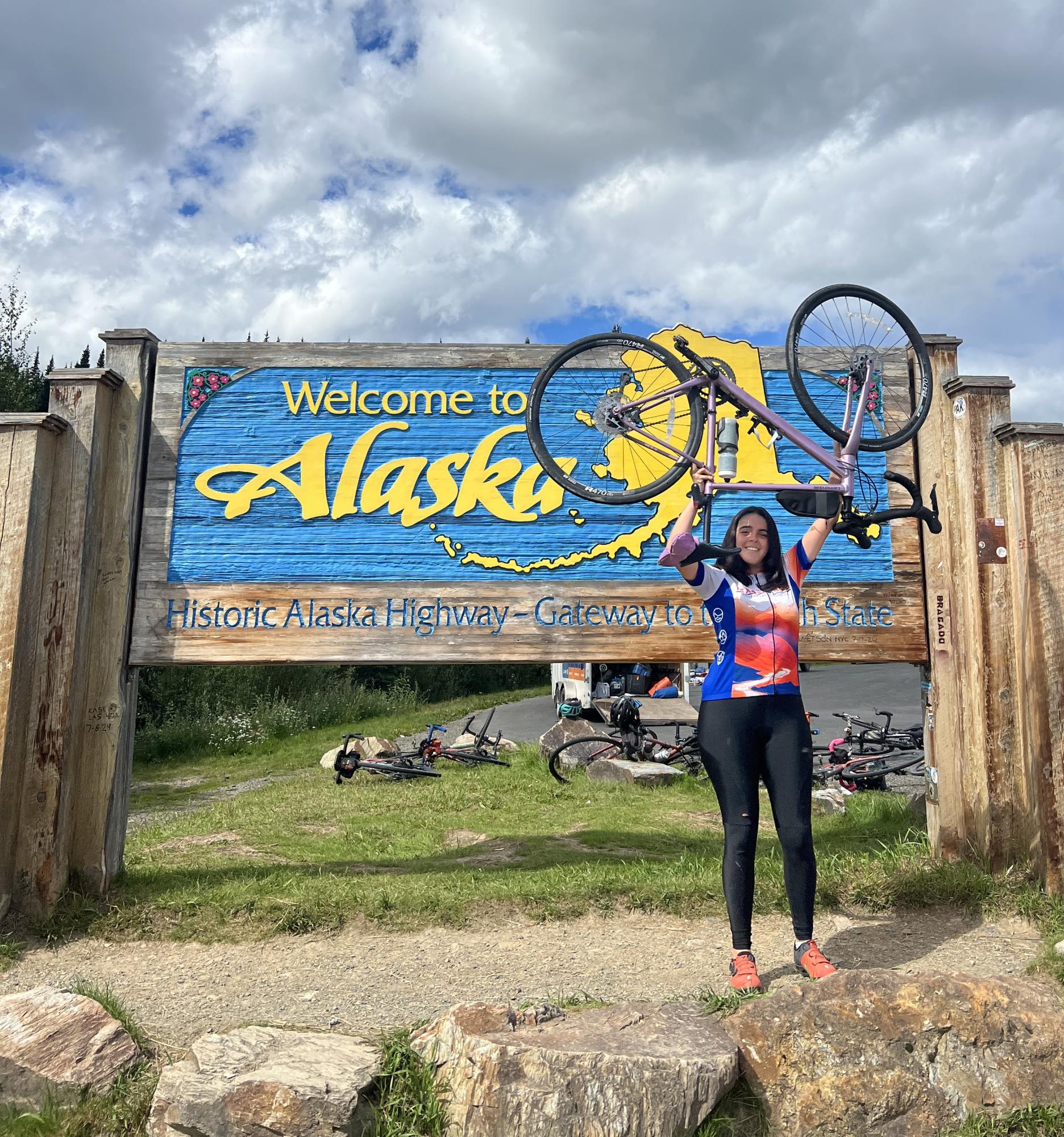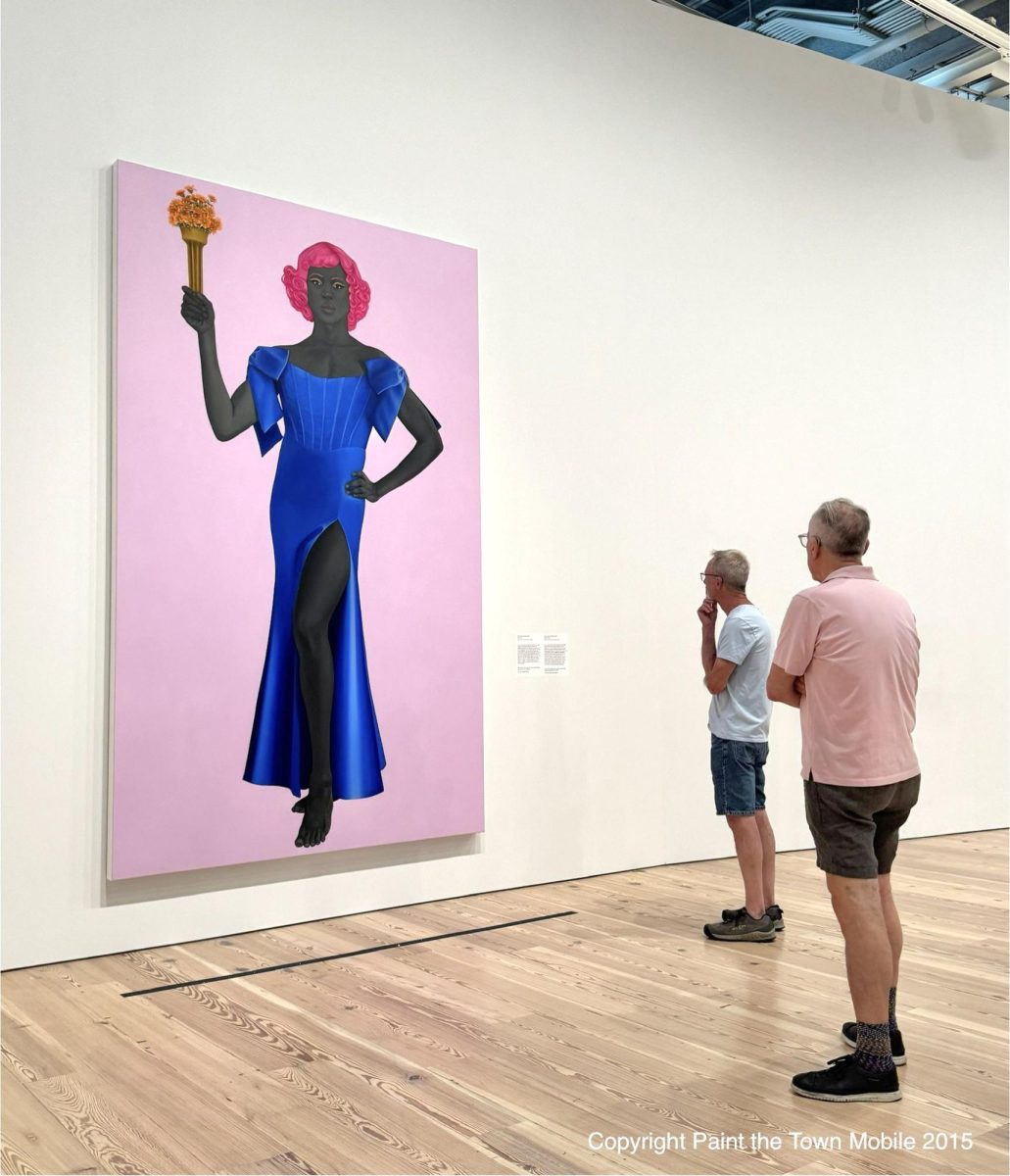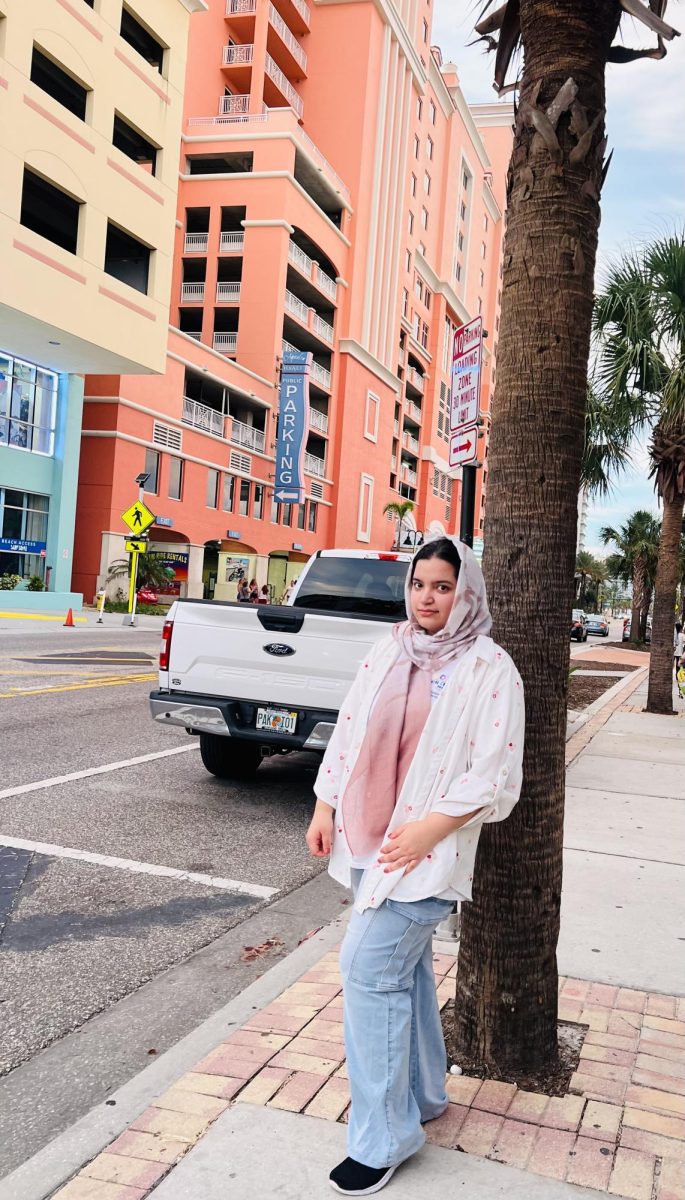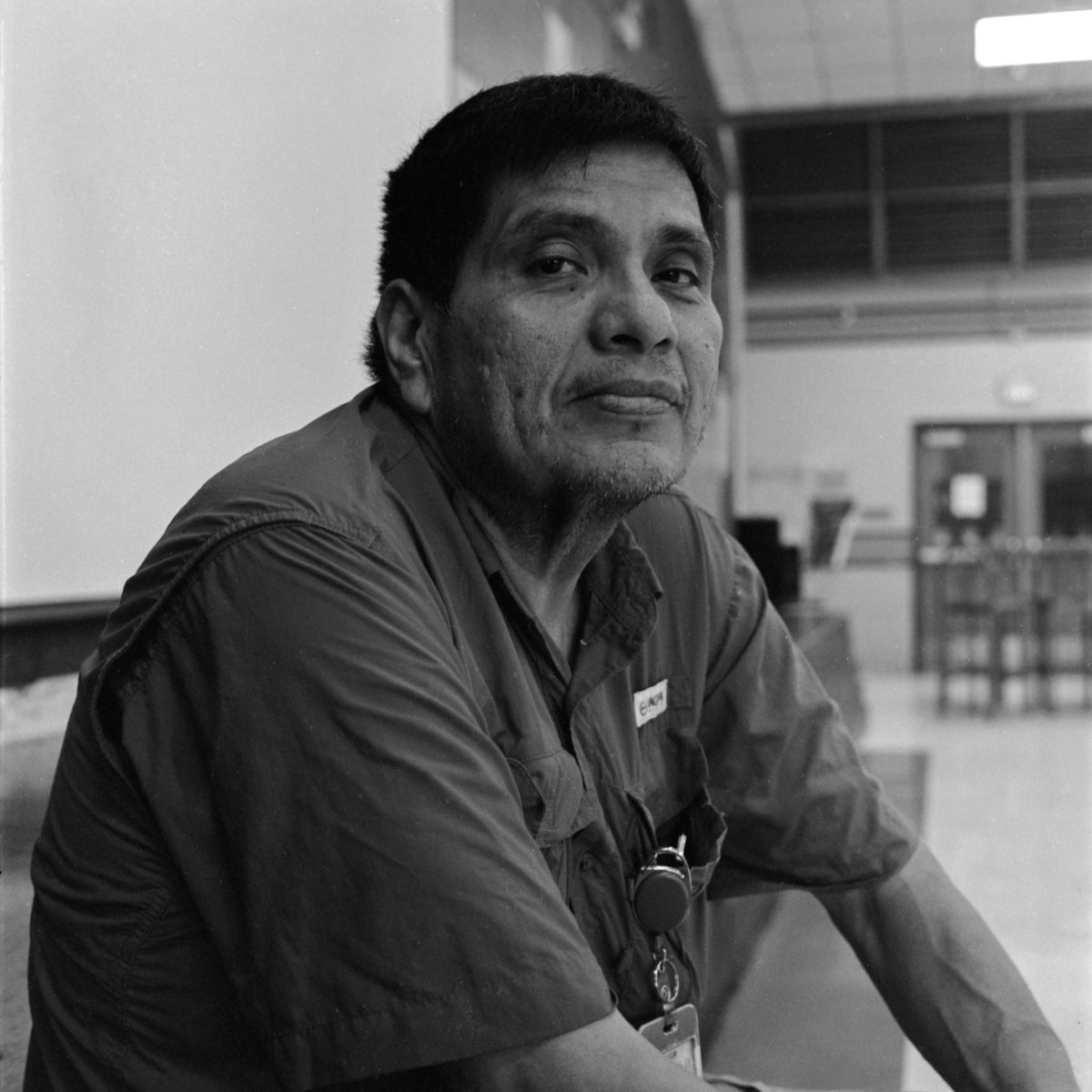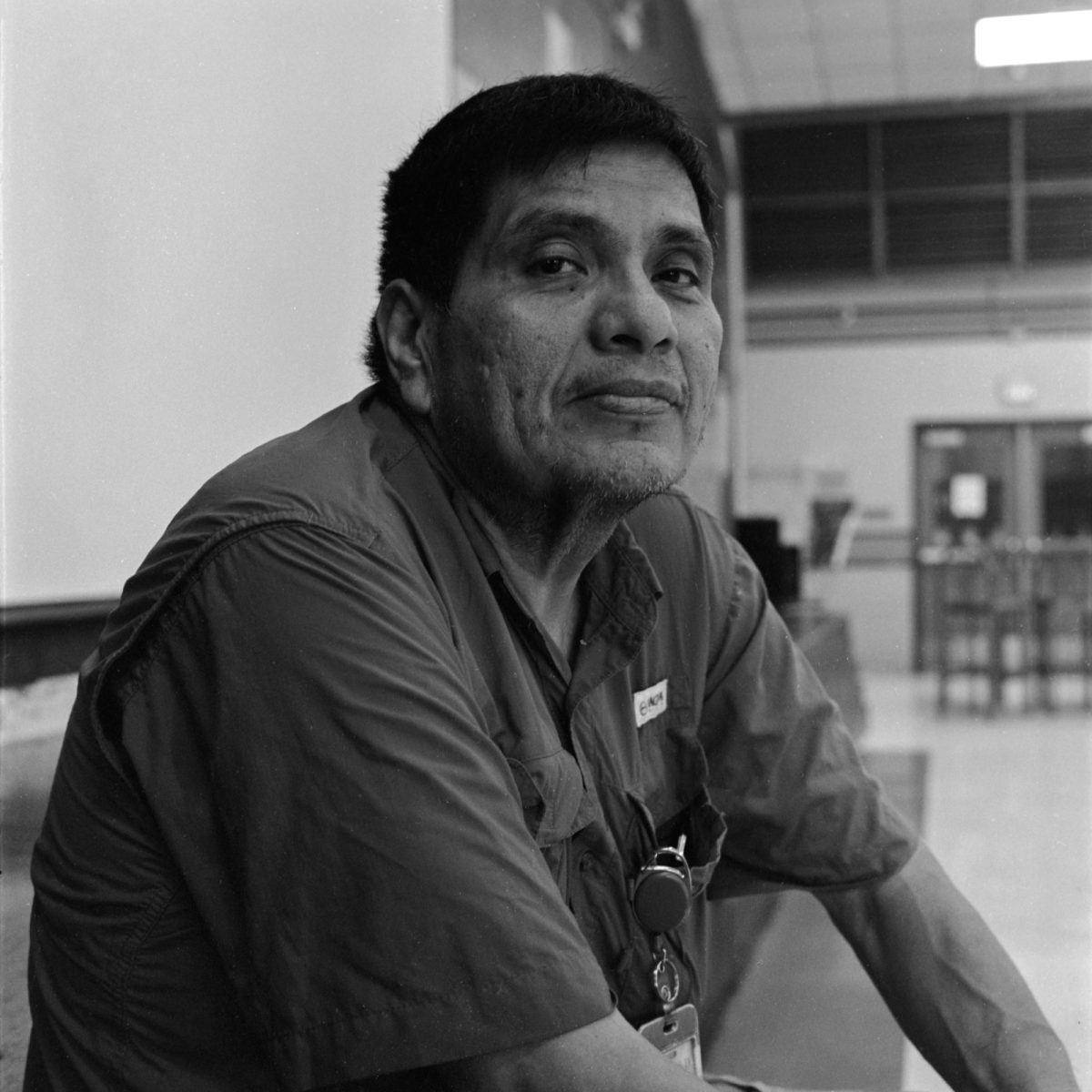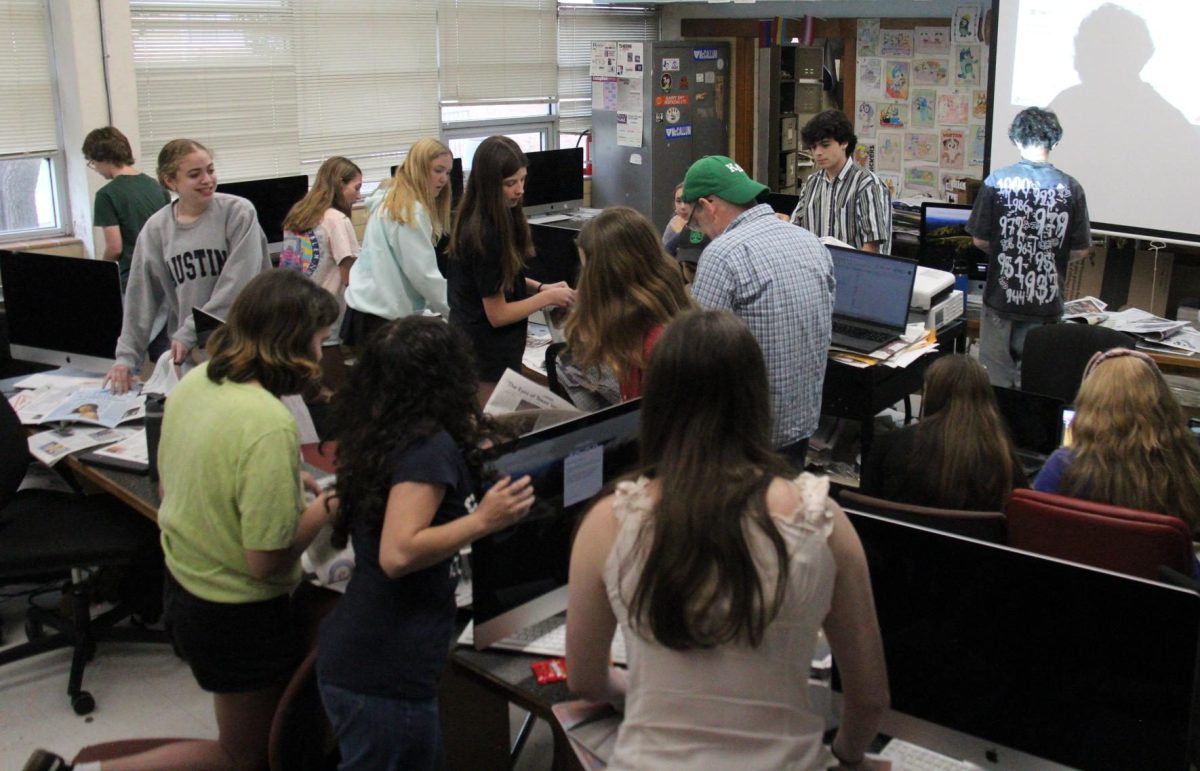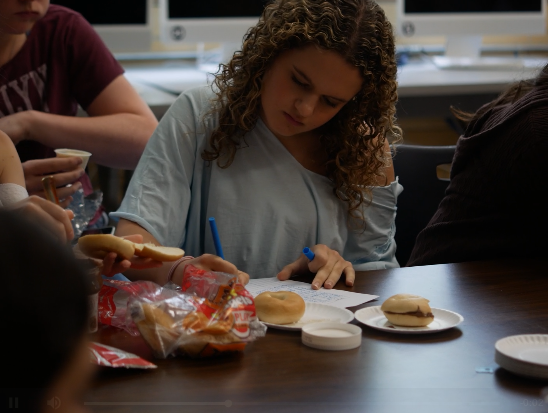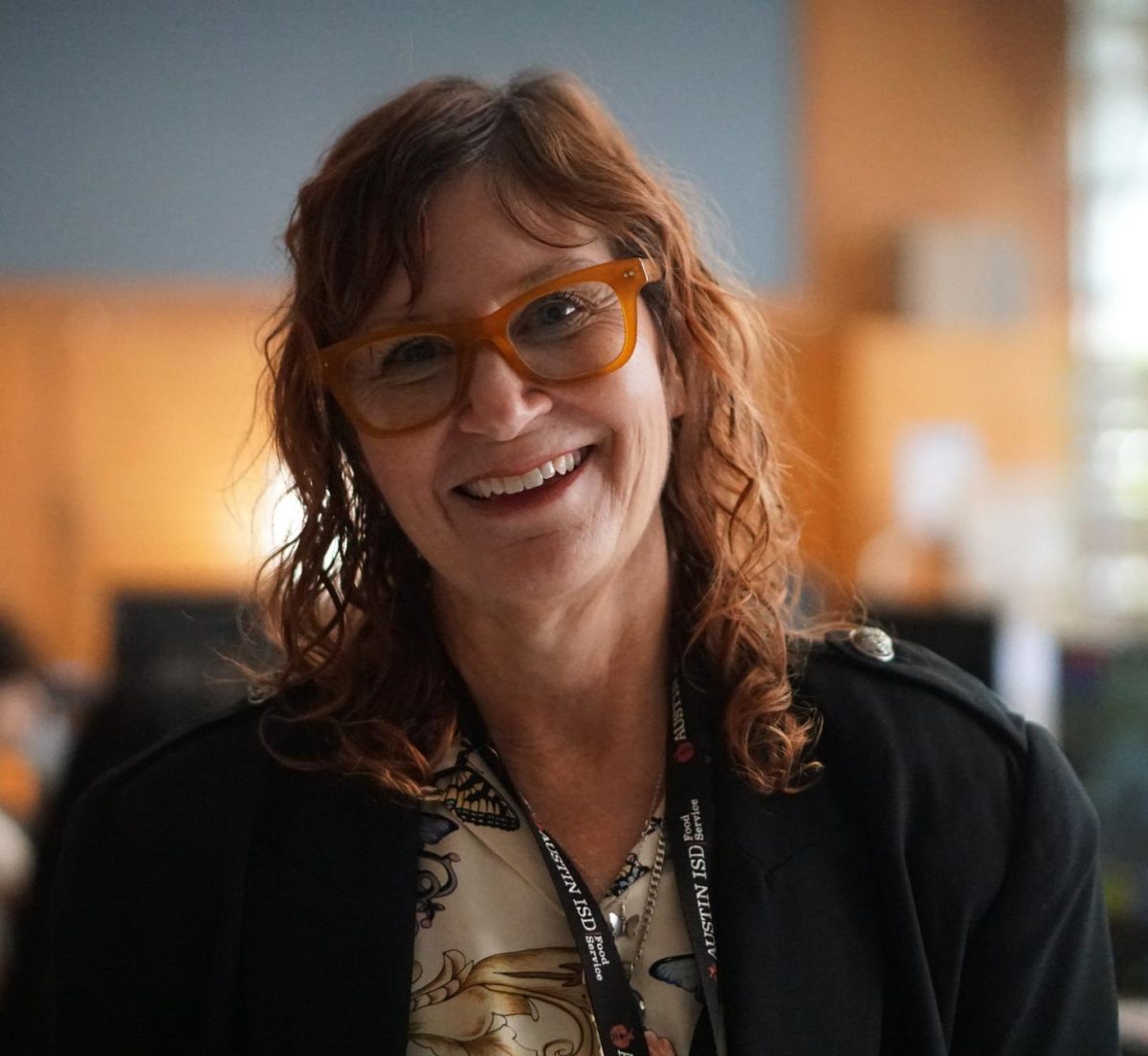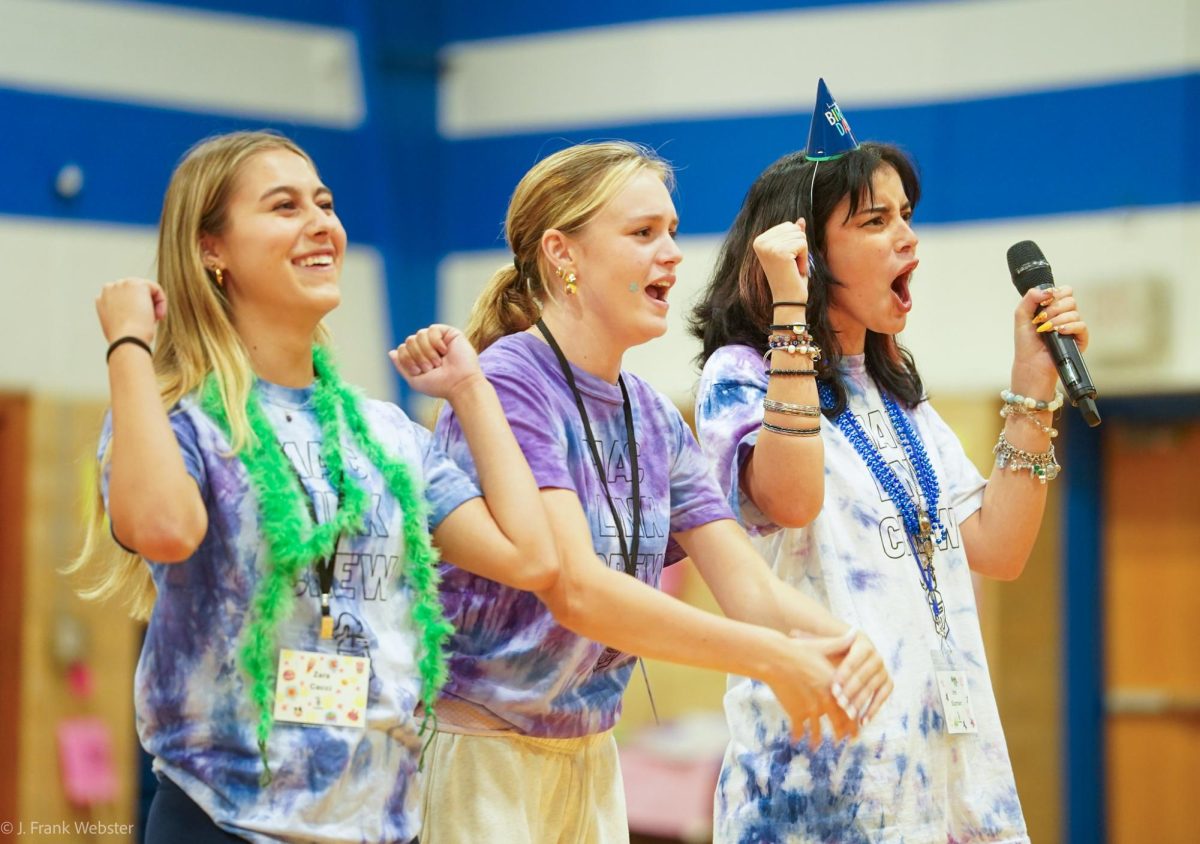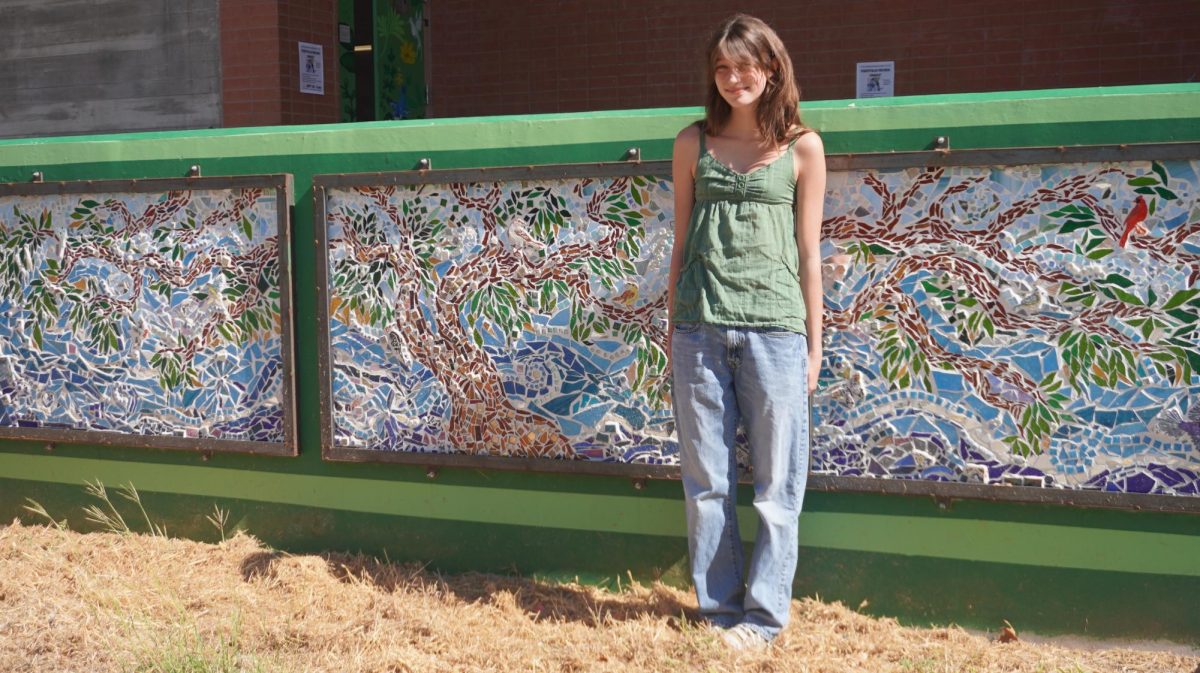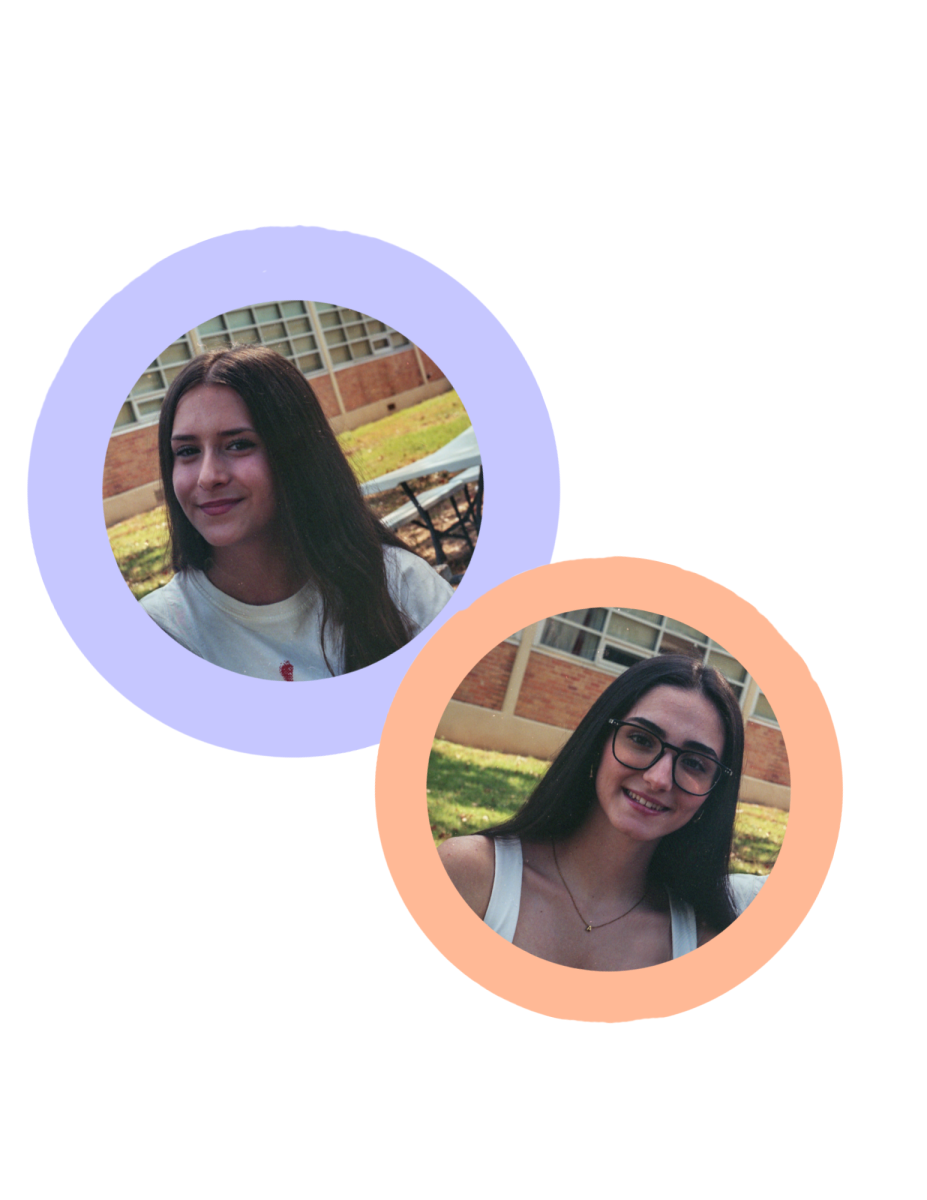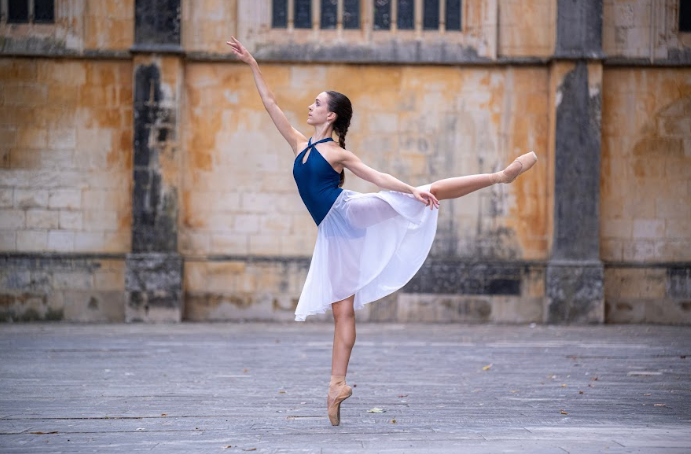After one year of training, 70 days of riding, two bikes and logging more than 60 miles per day, University of Texas graduate Carolina Arellano was greeted with friends, family, and a finish line marking the end of her 4,000-mile ride to Alaska. Over the course of the last two years, Arellano has devoted her life to Texas 4000, a University of Texas-based organization that serves communities affected by cancer via riding to Anchorage, Alaska, raising a dollar for each mile ridden.
Arellano’s journey began with a mission, a passion and a goal. After losing her grandmother to cancer in 2008 and seeing the disease affect family members and friends, Arellano applied to be a part of Texas 4000. While she considered herself an amateur rider shortly after acceptance, the opportunity motivated her to commit more to the organization than she had committed to any previous endeavor and kindled in her a deep love of exploration.
“I like being able to explore the country in a way that you really can’t do in any other form of transportation,” Arellano said. “I [just] grew a really extreme passion for biking across the country.”
The program provided a full year of training leading up to the ride. The training included working on stamina, preparing for emergency situations and equipping for dangerous terrain. While the program prepared the members well, Arellano recalled she and her teammates were in charge of planning and buying supplies they needed to bring on the ride.
“I bought my tent and sleeping pad,” Arellano said. “But, they did have a scholarship program where they would give out money to the riders who were less financially in a position to afford all that stuff. And riders from previous teams also had a program where they would sell their stuff at a reduced rate.”
Texas 4000 assigned each of the riders one of three routes to get to Alaska. Arellano was given the Sierra route, which runs from Texas to California then up the Pacific coast all the way to Alaska.
“That route was special to me because I felt like I could make a bigger impact as a Spanish speaker,” Arellano said. “There was a greater demographic of Spanish-speaking and Hispanic population in California, so I thought I would be able to create a different impact than most of my other teammates would be able to.”
Knowing she would be riding through California, Oregon, Washington and eventually Canada played a big role in figuring out what she needed to bring on the ride and how to be prepared for the environment.
“A sleeping pad was a big deal instead of just sleeping directly on the ground with your sleeping bag,” Arellano said. “Also a bike computer, a little mini device that you put in front of your handlebars [that] routes you. That’s how we knew how to get to places.”
Eventually, the year of preparation for the 70-day ride came to an end, and Arellano was faced with her last to-do list item before the departure to Alaska.
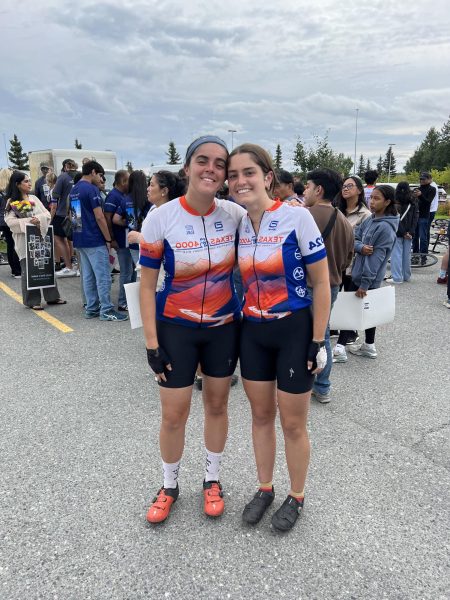
“We had our 100-mile test and that was the [last] big thing you really needed to do,” Arellano said. “[It was] 100 miles in 10 hours or less to qualify to go on the summer ride.”
The test required all members of the program to put their athletic and mental abilities on the line and ensure they were ready for the obstacles, and exhaustion riding to Alaska would bring. Arellano passed, checking off the final box to make her eligible for the ride.
“I had already raised all the money I needed to raise at that point, so there was really nothing else [to do] the last week,” Arellano said. “I didn’t ride at all because they recommended you just take it easy since you’re gonna be doing a lot of really intense stuff for the next two months.”
May 25, 2024, marked the official start of the 70-day, and 4,000-mile ride. Arellano and her 25 ride mates packed the Texas 4000 trailer that would follow them on the ride with sleeping bags, extra bike parts, tents and other needed supplies.
“We had three vehicles,” Arellano said. “We had a scout car just so that people wouldn’t get lost. We had a big van that could hold more than half of our teammates so that if we needed to do a drive day, we could drive all of us. And, then we had a trailer. Usually two vehicles were at startup, setting up rest stops and then one of them was kind of just patrolling and making sure everyone is good on the road.”
The riders on each route would be housed with a host each night or would set up camp at a rest stop. If they has a local host, the riders would be provided a home to stay in and a meal with the host family.
“A lot of them are historic hosts who have hosted the team in the past,” Arellano said. “Sometimes we had an activity … and then from there, we just interacted with the host, told them about their mission and then they talked to us.”
Since the group was on the larger side, Arellano noted they would often be split up into different houses when in a host community. When a host wasn’t available or the team was located in a more rural environment, they stayed at one of 20 total campsites.
“Every day was different,” Arellano said. “[Camp] days would involve us cooking for ourselves, setting up camp, dealing with all the logistics of paying the people for the campsite and things like that.”
While the daily rides would often start at 6 a.m. and end shortly before sundown, the team would have the opportunity to explore the town they were hosted in each night.
“Sometimes we had, like, a specific event we had to get to,” Arellano said. “In San Francisco, there was a Texas Exes chapter hosting us, so we had to bike really fast and then [go to a] dinner, and gala.”
Arellano and her team would ride anywhere from 50-100 miles in a given ride day depending on the distance to their next stop.
“Sometimes a ride was short, like 50 miles, so we’d have a lot more time to explore,” Arellano said. “We had rest days in places like San Francisco and Portland, so we had a day off to explore the city. Not every day was biking; they had built-in rest days for us.”
While for the majority of the 70-day ride, the schedule was very regimented and followed the same general agenda, the team did run into emergency situations. While it was a part of their original training, Arellano said at a certain point the team couldn’t prepare for the dangers of roadside riding.
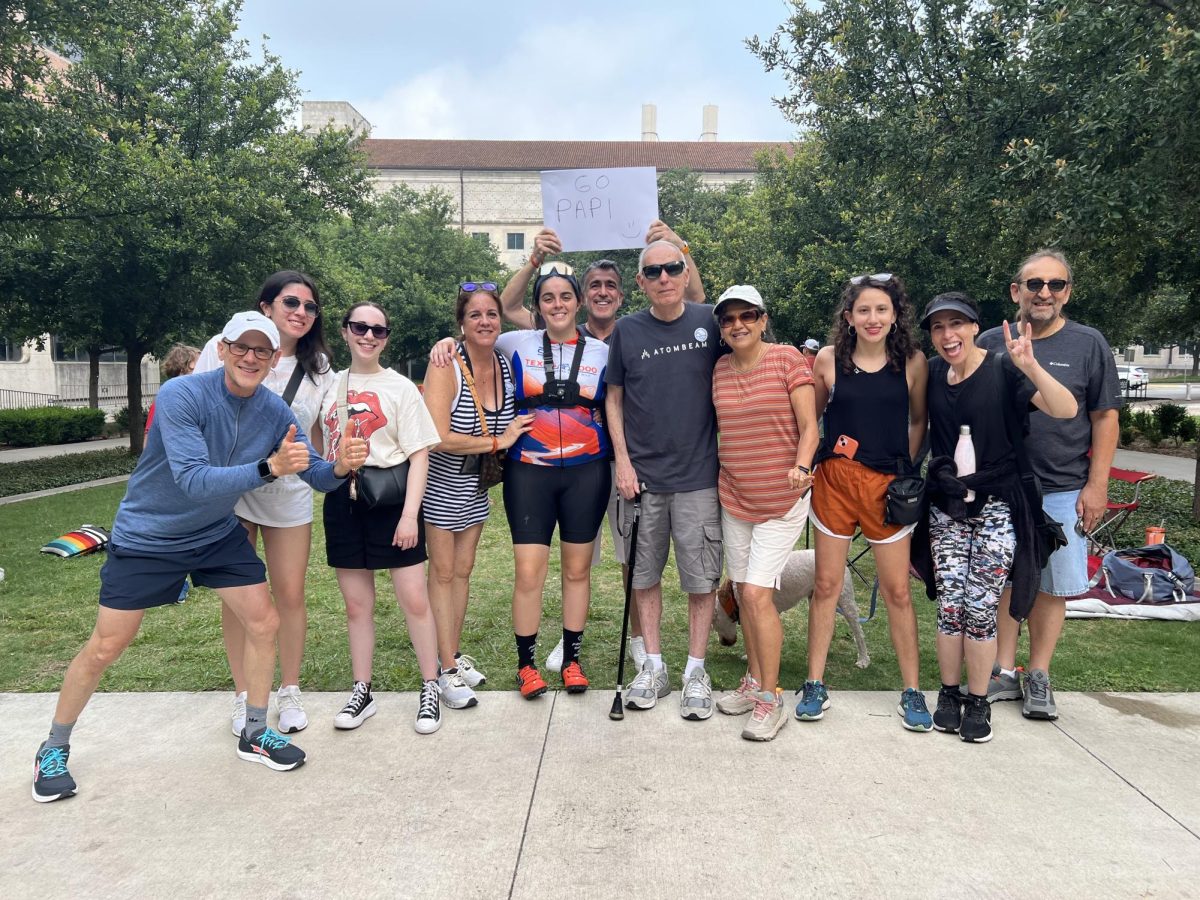
“We had somebody get into an accident in Lake Tahoe, which is really well known for its very windy and steep descents,” Arellano said. “When something like that did happen, no one was really allowed to ride through the rest of the day because there was too much going on.”
While Arellano said the team was very fortunate to suffer only one accident, they had to deal with daily bike breaks and logistical hiccups. Before the ride, Arellano was awarded the title of head mechanic, which meant she was largely responsible for aiding riders in fixing bike problems.
“They needed somebody who knew their way around a bike in case something broke,” Arellano said, “just so people could continue riding, instead of having to go to a bike shop and pay X amount of money, we could do it for them.”
While Arellano manned the role of head mechanic, midway through the ride she and one of her teammates had the unexpected loss of their bikes due to theft.
“I woke up really excited to get ready and ride, and my bike was missing from the shed,” Arellano said. “We were all really upset about that, neither of us could ride that day.”
For Arellano, the situation proved to be a real test of her problem-solving abilities.
“We were staying at a local YMCA that was brand new, so we’re really excited because they let us use all their facilities for free,” Arellano said. “[But] I had to file a police report [for them to give me] the footage; it was just too much.”
Given their sudden lack of bikes, Arellano and her teammate had to skip the ride that day and work on regaining their equipment.
“At this point, I was thinking, I’m gonna have to pay at least $1,000 out of pocket for something that I already had but need to buy myself again, which was really annoying,” Arellano said. “I shouldn’t have to pay for another bike.”
Upon losing their bikes and beginning to research buying new ones to continue the ride, Arellano’s ride mate Emma Stromberger was able to connect with a contact in Eugene, Ore., close to where the pair were camped trying to solve their equipment issue.
“So, Emma’s friend had a contact in Eugene,” Arellano said. “He worked for the news there, and so she did an interview with the local news station and appeared on the local news.”
According to Arellano the interview and feature was their saving grace with the whole situation.
“This guy had seen our news story and was like, ‘Hey, I read this and that’s really unfortunate that that was your experience in Eugene. My friend owns a bike shop, and he could really use the sale, I really feel like doing this. How about y’all come down to Eugene, and I’ll buy the bikes for you guys,” Arellano said. “He was really incredible.”
The donor’s own experience battling brain cancer and surviving a near-fatal cycling accident was a main reason he wanted to support Arellano and Stromberger’s trek to Alaska.
“It’s just really nice to see someone who maybe shouldn’t have been there for us at that moment,” Arellano said. “It completely turned around the situation of these people who stole my bike to something more of an incredible person in the community that made the situation 100% better.”
While the 24 hours without bikes impeded their ride, Stromberger said that the time off the bikes allowed the two to develop a friendship and bond.
“Carolina and I got super close after both of our bikes were stolen,” Stromberger said. “I was in awe of how she took this setback with grace, and we got through it together.”
Stromberger said that the setback allowed a lot of Arellano’s resilient personality to show through.
“Carolina and I didn’t really know each other during training semester or even the very beginning of the ride,” Stromberger said. “[But] she is an awesome and kind and inspiring person and that is someone that I want to be friends with.”
Arellano noted that while the experience was a challenge for the pair, overcoming that challenge together allowed her to see her impact in action, and form bonds with the people on her team.
“I liked all the bonds that I made with people,” Arellano said. “I loved all the people and their kindness and generosity. [They’ve] definitely impacted the friendships I’ve made, the people that I hang out with and my attitude for cycling.”
After 70 days and 70 nights together, Arellano had made lifelong friends and connections.
“I do consider these people to be my friends for life,” Arellano said. “The lifetime experiences in the 70 days that we were together show that we can get through anything.
A large part of the Texas 4000 mission and objective of the program is to connect with others about why they ride, and who they ride for. Before each ride, the team would have a chance to dedicate their time, energy, mileage and love to someone affected by cancer.
“Often it involved the hosts that we were with,” Arellano said. “They would join us in the ride dedication, and they sometimes gave their own dedications, which was fun.”
Arellano said moments like the ride dedication and conversations whilst riding made the whole trip worthwhile.
“My dad’s best friend is going through chemo right now,” Arellano said, “and he actually asked me while I was on the ride to do a ride dedication for him.”
Between the ride dedications, moments on the road and time spent exploring the city together, the Texas 4000 brought Arellano closer to cancer-affected communities and to the teammates who joined her on the journey.
“[At the start] people were going at different speeds, people were left behind, and that’s like a really big no, especially because we’re in the middle of nowhere,” Arellano said. “We’ve never been in this part of the country before, and it’s just really unsafe to leave a teammate behind.”
According to Arellano, at the start of the 70-day ride, the team was fairly unbonded; however, through time and shared experiences they grew closer and built the foundation for a strong team.
“By Canada, everyone was very comfortable,” Arellano said. “It didn’t really matter who you rode with because you could do it regardless of who you were with. As time went on, we saw how stupid it was to see something very important, as [merely] a race.”
One of the friendships that Arellano formed on the ride was with a University of Texas student Isam Ahmed.
“Texas 4000 is not only a cancer-fighting organization, we are also a leadership organization,” Ahmed said. “A unifying trait amongst all of us is how much we want to do it. No one comes into this organization with a “meh” mentality. For us, quite literally, it’s either go big or go home. So, there was a desire to make closer friendships so doing the tasks that on some days you didn’t want to do would not seem so mundane.”
Ahmed noted he and Arellano formed their friendship from day one.
“It was only 52 miles, but my body felt like giving up,” Ahmed said. “But Carolina never let that happen. Despite being super tired herself, she always kept the energy up, putting on reggaeton loud on her speaker, trying to keep my mind off of the sweltering heat until we eventually finished the ride.”
Ahmed and Arellano’s friendship blossomed from day one all the way to the finish line at mile 4000.
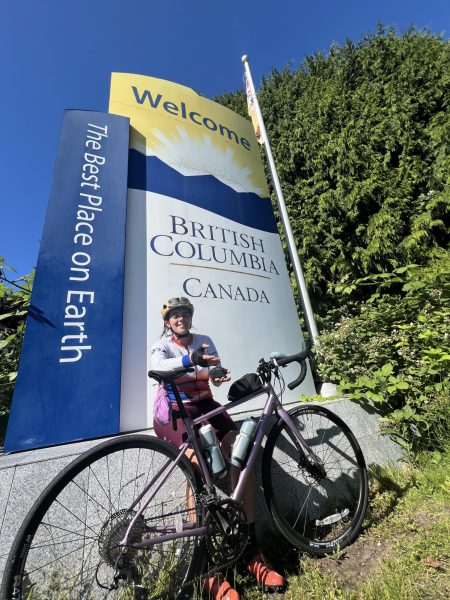
“I got to finish the summer ride with her,” Ahmed said. “We biked about 35 miles from Wasilla to Anchorage and that day while we were biking we were just reminiscing about the entire summer and how in a few hours it was all going to come to an end.”
Ahmed noted that part of the beauty of the ride was getting to appreciate the drastic variety of environments he got to see with his ride mates over the summer.
“Our only regret at that point was how we never saw a moose out in the wild yet,” Ahmed said. “A few miles later we stopped dead in our tracks. A moose was crossing the road, and all we could do was look at each other and gaze in awe at the animal.”
Arellano, Ahmed and the rest of the group additionally had the opportunity to bond with cancer patients, and those affected by the disease through visiting research facilities and hospitals.
“We did visit a few hospitals, and they showed us programs through which our money that we donated impacted, and we met researchers on those teams, which I really enjoyed,” Arellano said. “Just like them presenting on the topics, and seeing that our money is going towards something tangible or like something that I could see firsthand was really, really good to see, good to visualize in person.”
While the majority of the money was raised before the ride to Alaska began, being face to face with those affected by their fundraising effort is an experience Arellano said she will remember forever.
“I think it was very special and very important to know that you were making an impact,” Arellano said.
Eventually the 70th day hit—Aug. 2. Arellano was met at the finish line, 4,000 miles from her Austin hometown, by friends and family.
“My mom was my biggest supporter,” Arellano said. “I had my parents and my friends fly in to come see us because it was really fun; it was very surreal. It was weird, [I thought] ‘Are we really done?’”
At the finish line, Arellano reflected upon her mindset that kept her going throughout the ride.
“The further we got into Canada and eventually Alaska people were starting to hurt, and just a lot of things were going wrong,” Arellano said. “[But] my friends and family and the loved ones that I had lost really helped push me through,” Arellano said.
After completing the ride, Arellano explored Anchorage with her family before flying home and reintegrating back into reality. After devoting so much of her past year to riding and supporting the cancer awareness and research community, Arellano felt like a part of her was missing. She fills the hole by continuing her love of riding, meeting new people and connecting with others through advocacy.
“I’m definitely still biking as regularly as I can with my job I have,” Arellano said. “We still have group chats with a bunch of people. We try to go every weekend. We’re a new group. Without the ride, our friendships would not have developed like this.”
The 4,000-mile ride started with a love of exploration, an interest in biking and a passion for advocating for those affected by cancer. It has inspired her to continue riding and making a positive impact on the world around her.
“I love it more than I did before I left,” Arellano said. “It’s something that I’ll never forget and I’ll always carry with me.”



